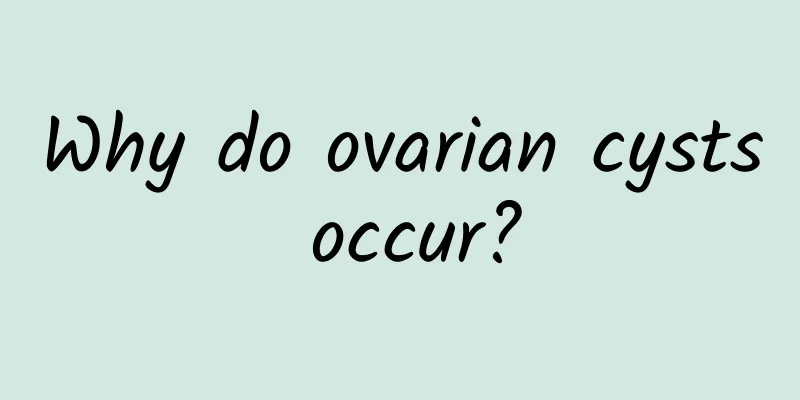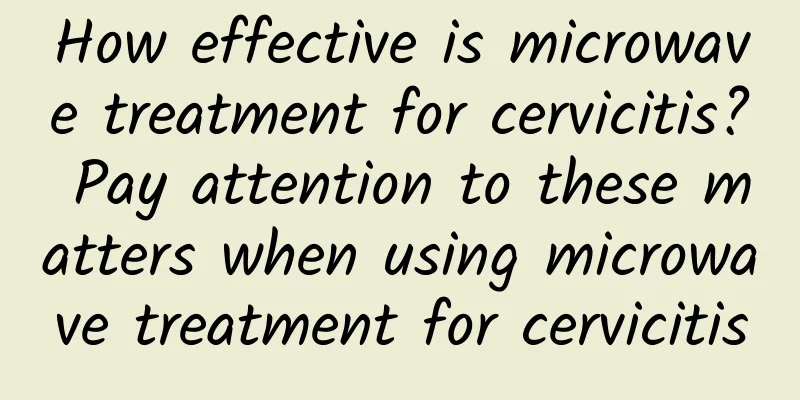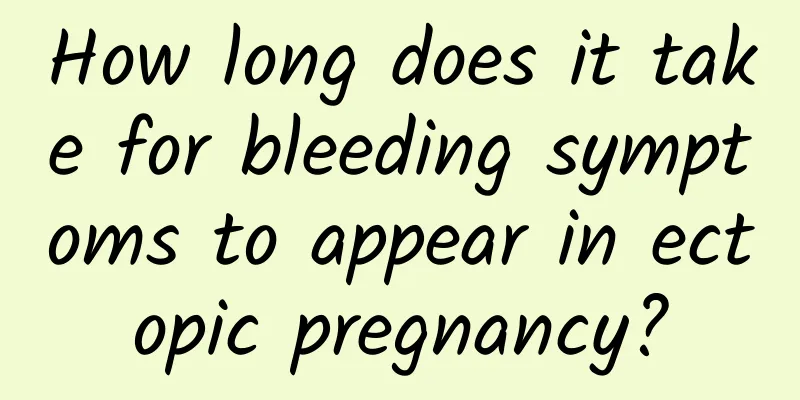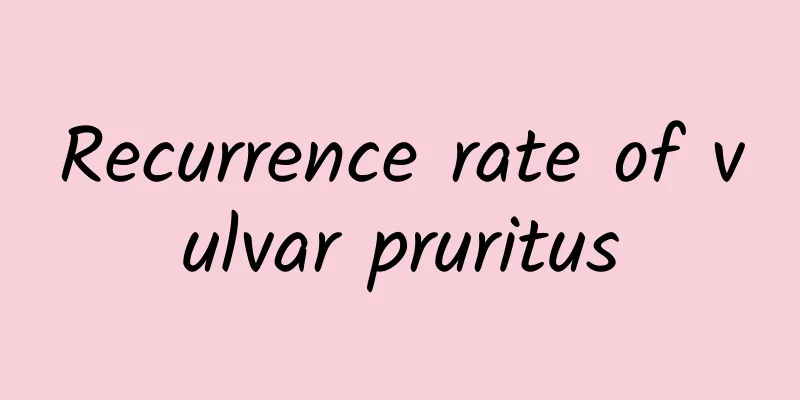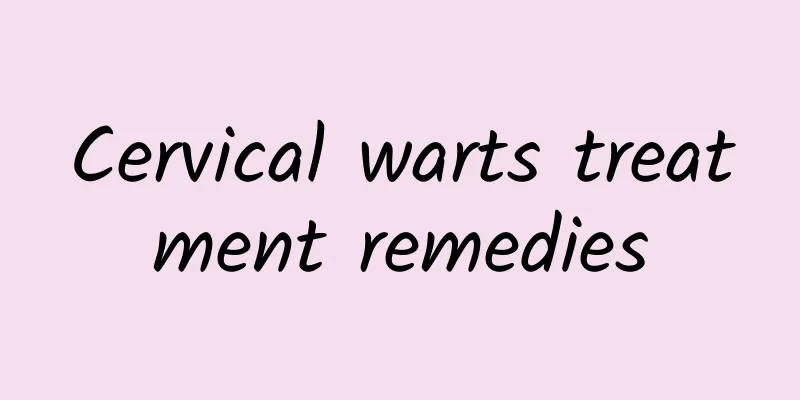Cervical hypertrophy, cervical cyst, pregnancy
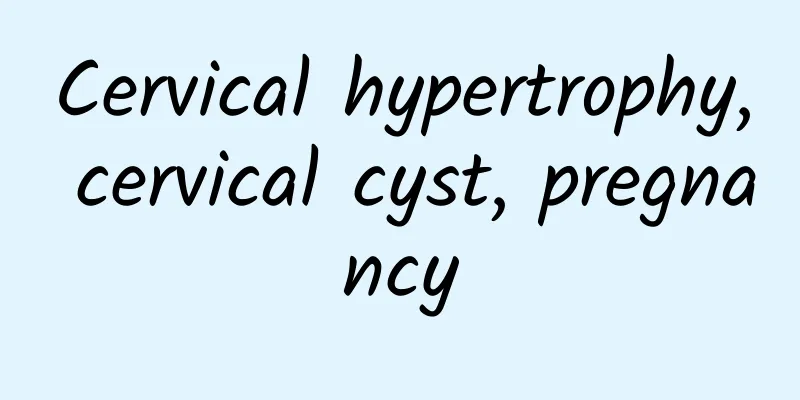
|
Whether cervical hypertrophy and cervical nabothian cysts will affect pregnancy depends on the severity of the disease. Mild cervical hypertrophy or small cervical nabothian cysts usually have little effect on pregnancy, but severe cases may cause decreased cervical elasticity or changes in the intrauterine environment, and timely treatment is required to improve fertility conditions. The following is an analysis from the cause to the treatment method. 1. Causes and effects of cervical hypertrophy and cervical cyst Cervical hypertrophy is usually caused by chronic cervical inflammation or endocrine disorders. Common symptoms include increased vaginal discharge and lower abdominal discomfort. In severe cases, it may affect sperm passage or cervical function. Cervical nabothian cysts are small cystic structures formed when cervical glands are blocked. They are mostly caused by inflammation. If the cyst is large, it may compress the cervix and surrounding tissues and interfere with pregnancy. Recommendation: Mild lesions without obvious symptoms can be checked regularly. In most cases, no special treatment is required. However, if the cyst is large or the cervical hypertrophy is severe, early intervention treatment is required. 2. How to deal with cervical hypertrophy Treatment for cervical hypertrophy can be selected according to the severity of the disease, including medication, physical therapy or surgery. -Drug treatment: Anti-inflammatory drugs (such as antibiotics) can be used to relieve inflammation in early or mild cervical hypertrophy. -Physical therapy: including cryotherapy, laser or microwave therapy, can effectively reduce the size of enlarged cervical tissue. -Surgical treatment: When the cervix is severely enlarged or the medication effect is not ideal, cervical conization can be considered to restore normal cervical function. The doctor will choose a method to preserve the cervical structure as much as possible based on the patient's reproductive needs, so a personal pregnancy plan must be clarified before treatment. 3. How to treat cervical cyst Treatment for cervical nabothian cysts is determined by the size of the cyst and symptoms. -Drug treatment: For smaller cysts, anti-infection drugs can be used under the guidance of a doctor to control inflammation. -Puncture and drainage: Larger cysts can be drained by puncture to relieve local pressure and reduce the burden on the cervix. -Surgical treatment: If multiple cysts cause abnormal cervical morphology, cervical cold knife cone biopsy or LEEP knife surgery can be used. Recommendation: Regular follow-up should be performed after treatment to ensure a stable cervical environment. 4. How to regulate reproductive health and improve pregnancy conditions On top of treatment, maintaining cervical health can help restore reproductive system function. -Dietary adjustment: Eat more foods rich in vitamin C and E (such as oranges and nuts) to strengthen the immune system and prevent inflammation. -Proper exercise: Increases blood circulation, helps improve pelvic blood supply, and promotes organ repair from the inside. -Regular work and rest schedule: ensure adequate sleep, avoid staying up late, and reduce the risk of endocrine disorders. The above measures are beneficial to the repair and regeneration of cervical tissue, making the entire reproductive system more suitable for conception. Mild cervical hypertrophy and cervical nabothian cysts will not significantly affect pregnancy, but severe cases require active treatment to increase the chances of natural conception. Patients who want to have children are advised to go to the gynecology clinic for a detailed evaluation as soon as possible and work with the doctor to develop a treatment and pregnancy preparation plan. |
<<: Is the uterine fluid discharge blood?
>>: How to treat uterine cysts with medication
Recommend
What is right ovarian cyst and what are its clinical symptoms
What is a right ovarian cyst? What are the clinic...
Does cervical hypertrophy require treatment?
Whether cervical hypertrophy requires treatment d...
The golden period for weight loss after childbirth? Pregnancy is the key
When a baby is born into this world, the first th...
What medicine should I take for breast pain during menstruation
When patients experience breast pain during menst...
How many years can you live with late-stage Bartholinitis?
The Bartholin's glands are located at the bac...
Autumn and winter weight loss plan: Get rid of fat easily with exercise
Exercise has always been one of the most effectiv...
Analysis of common causes of recurrence of cervical hypertrophy
For any disease, recurrence is the last thing pat...
Why is whey protein so popular as the fitness trend emerges? The reason is…
In recent years, health awareness has risen, fitn...
What are the symptoms of white lesions of the vulva?
What are white lesions of the vulva? What are the...
Not paying attention to menstrual hygiene may cause adnexitis
Not paying attention to menstrual hygiene may cau...
Why do women suffer from recurrent cervical erosion? Five reasons make cervical erosion difficult to cure
What is the reason why cervical erosion recurs an...
What is cervical cyst?
What happens to cervical nabothian cyst? Clinical...
Do you know what the dangers of vaginitis are?
Do you know what the dangers of vaginitis are? Wh...
Improper cleaning of the washing machine may cause vaginitis
Washing machines have brought convenience to thou...
This is great for gaining muscle and losing fat! What is Turkish Yogurt Egg Salad? Nutritionist teaches you DIY
What should you do if you want to successfully lo...


